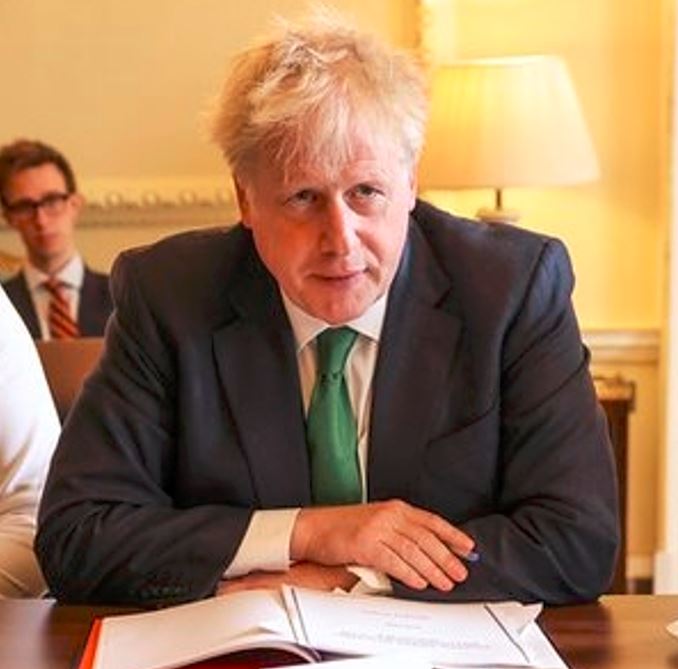Boris Johnson will face a no-confidence vote in his leadership of the Conservative party today (June 6) after at least 54 MPs sent letters against him to the backbench 1922 Committee.
Downing Street said the vote at 6pm will be “a chance to end months of speculation” about Johnson’s leadership following the Partygate scandal.
Chairman of the 1922 Committee, Sir Graham Brady said he has received enough letters of no-confidence from Conservative MPs – at least 54 or 15% or the parliamentary party – to trigger the vote.
Announcing the vote this morning – after a damaging Jubilee weekend for the PM that saw Johnson booed by the public on the steps of St Paul’s cathedral – Brady said he notified the prime minister yesterday (Sunday) and agreed a timetable with him about how the vote would take place.
Health secretary Sajid Javid is among Johnson’s allies confident the PM will survive the secret ballot of Tory MPs and told BBC Radio 4’s Today programme: “If he wins, that will draw a line under it.”
Conservative party rules mean Johnson will not face another no-confidence vote for 12 months if he secures the backing at least 180 MPs. However, the rules can be changed and Theresa May lasted just seven months after her 2018 no-confidence vote before she was ousted from No 10 by Johnson in 2019.
While Johnson is likely to survive this evening’s no-confidence vote, opposition on his own backbenches is growing in numbers and vociferousness.
Ex-minister’s no confidence in ‘grotesque’ Johnson
Former Tory minister Jesse Norman has spectacularly voiced his disdain for the prime minister’s leadership and in a letter to Johnson, called his response to Partygate “grotesque”.
Norman, an ex-financial secretary to the Treasury, said he has “supported Boris Johnson for 15 years, for the London Mayoralty and for PM. “Very sadly, I have written to him to say I can no longer do so,” Norman tweeted, posting his excoriating letter to the prime minister.
In it, Norman refers to the “culture of casual law-breaking at 10 Downing Street” which Johnson has “presided over”.
“To describe yourself as ‘vindicated’ by the [Sue Gray] report is grotesque.”
Norman rounds on Johnson’s key policies and accuses the prime minister of putting the Union “gravely at risk” while calling the Rwanda policy “ugly” and “of doubtful legality”.
The proposed Channel 4 privatisation is “unnecessary and provocative” at a time of crisis. He tears into the plan for the Northern Ireland protocol, a hallmark of Johnson’s Brexit deal, saying to rewrite it would be “economically very damaging, politically foolhardy and almost certainly illegal.”
Norman castigates the government’s restictrions on democratic rights, writing: “No genuinely Conservative government should have supported the recent ban on noisy protest – least of all when human freedoms are facing the threat of extinction in Ukraine.”
He says Johnson’s government “seems to lack a sense of mission” and despite its large majority, has “no long-term plan.”
“Rather you are simply seeking to campaign, to keep changing the subject and to create political and cultural dividing lines mainly for your advantage, at a time when the economy is struggling, inflation is soaring and growth is anaemic at best.”
Page two of Norman’s missive decries the replacement of “sensible planning” by “empty rhetoric” and lays into Johnson’s boast to transform the UK’s energy supply. “As a former Energy Minister I can tell you that there is, for example, zero chance that this or any government will be able to build a nuclear power station a year at any point in the next decade.
“Worse still,” Norman continues, is Johnson’s attempt to “import elements of a presidential system of government” and that trying to “centralise power in 10 Downing Street” will “compound and accelerate the problems listed above.”
Norman warns that neither the Conservative party of the country can afford to spend the two years until the next general election “adrift and distracted by endless debate about you and your leadership.”
“For you to prolong this charade by remaining in office not only insults the electorate, and the tens of thousands of people who support, volunteer, represent and campaign for our party; it makes a decisive change of government at the next election much more likely. That is potentially catastrophic for our country.”




